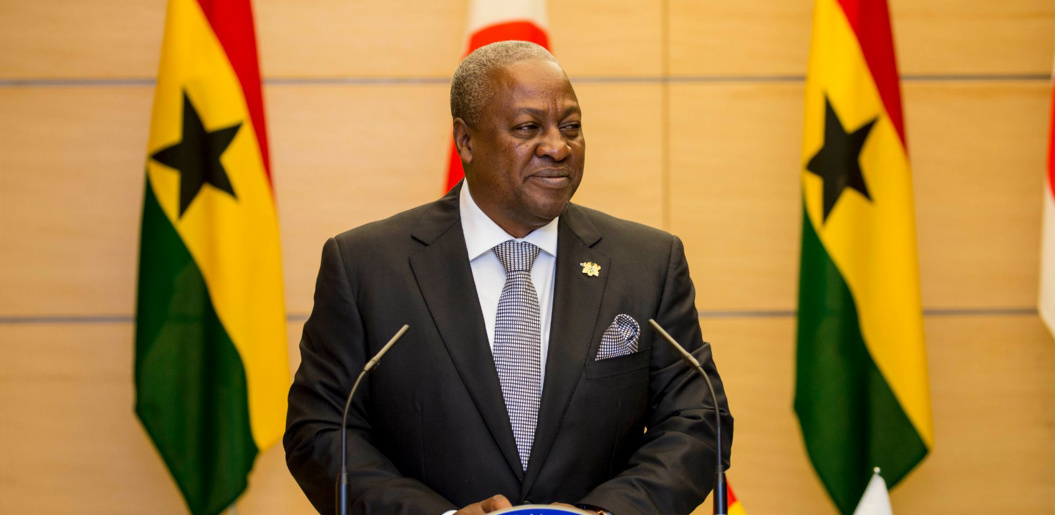Introduction
John Dramani Mahama, born on November 29, 1958, is a Ghanaian politician who served as the President of Ghana from July 24, 2012, to January 7, 2017. He is a member of the National Democratic Congress (NDC) and has had a distinguished career in both government and communications. Known for his eloquence and commitment to social infrastructure development, Mahama’s presidency was marked by significant achievements and notable challenges.
Early Life and Education
Mahama was born in Damongo, in the Northern Region of Ghana, into a prominent political family. His father, Emmanuel Adama Mahama, was a Member of Parliament and the first Regional Commissioner of the Northern Region under Ghana’s first president, Kwame Nkrumah. John Mahama attended the Achimota School and Ghana Secondary School in Tamale for his secondary education. He then went on to the University of Ghana, Legon, where he earned a Bachelor’s degree in History and later a Postgraduate Diploma in Communication Studies.
Mahama furthered his education in Moscow, Russia, at the Institute of Social Sciences, where he received a postgraduate degree in Social Psychology. This diverse educational background laid a strong foundation for his future political and professional endeavors.
Early Career
Before entering politics, Mahama worked as an Information Officer at the Embassy of Japan in Accra and later as the International Relations, Sponsorship, Communication, and Grants Manager for the Plan International NGO. His career in communications and public relations equipped him with valuable skills that he would later use in his political life.
Political Career
Mahama’s political career began in earnest when he was elected to the Parliament of Ghana in 1996, representing the Bole/Bamboi constituency. He was re-elected in 2000 and 2004. During his time in Parliament, he served in various capacities, including Deputy Minister of Communications, Minister of Communications, and as the Minority Parliamentary Spokesman for Communications.
Vice Presidency
In 2008, Mahama was chosen as the running mate to NDC presidential candidate John Evans Atta Mills. The Mills-Mahama ticket won the election, and Mahama became the Vice President of Ghana on January 7, 2009. As Vice President, he focused on improving telecommunications and infrastructure development.
Presidency
Assumption of Office
Mahama assumed the presidency on July 24, 2012, following the sudden death of President John Atta Mills. He was later elected in his own right in the December 2012 election, defeating his main rival, Nana Addo Dankwa Akufo-Addo of the New Patriotic Party (NPP).
Infrastructure Development
Mahama’s tenure was notable for its emphasis on infrastructure development. His administration invested heavily in roads, schools, hospitals, and energy projects. Significant projects included the expansion of the Tema Port, the construction of the Kwame Nkrumah Interchange in Accra, and various rural electrification projects aimed at improving access to electricity in remote areas.
Economic Challenges
Despite these achievements, Mahama’s presidency faced significant economic challenges. The country experienced a severe energy crisis, commonly referred to as “dumsor,” characterized by frequent power outages. Additionally, Ghana’s economy suffered from high inflation, a rising public debt, and a depreciating currency. In response, Mahama’s government entered into a bailout program with the International Monetary Fund (IMF) to stabilize the economy.
Corruption Allegations
Mahama’s administration was also marred by allegations of corruption and mismanagement. High-profile scandals, such as the GYEEDA and SADA scandals, involved accusations of the misappropriation of public funds. These issues, coupled with the economic difficulties, led to growing public dissatisfaction.
2016 Election and Subsequent Activities
In the 2016 presidential election, Mahama sought re-election but was defeated by Nana Akufo-Addo, who won with a significant margin. After his presidency, Mahama remained an active figure in Ghanaian politics and the NDC. He ran again as the NDC’s presidential candidate in the 2020 election but was once again defeated by Akufo-Addo.
Conclusion
John Dramani Mahama’s political career and presidency were marked by a mix of infrastructural achievements and economic challenges. His contributions to Ghana’s development, particularly in infrastructure, are significant, yet his tenure also highlighted the complexities of governance in a developing nation. As a former president, Mahama continues to influence Ghanaian politics and remains a prominent figure within the NDC, advocating for social justice and economic development.



Thank you for your sharing. I am worried that I lack creative ideas. It is your article that makes me full of hope. Thank you. But, I have a question, can you help me?